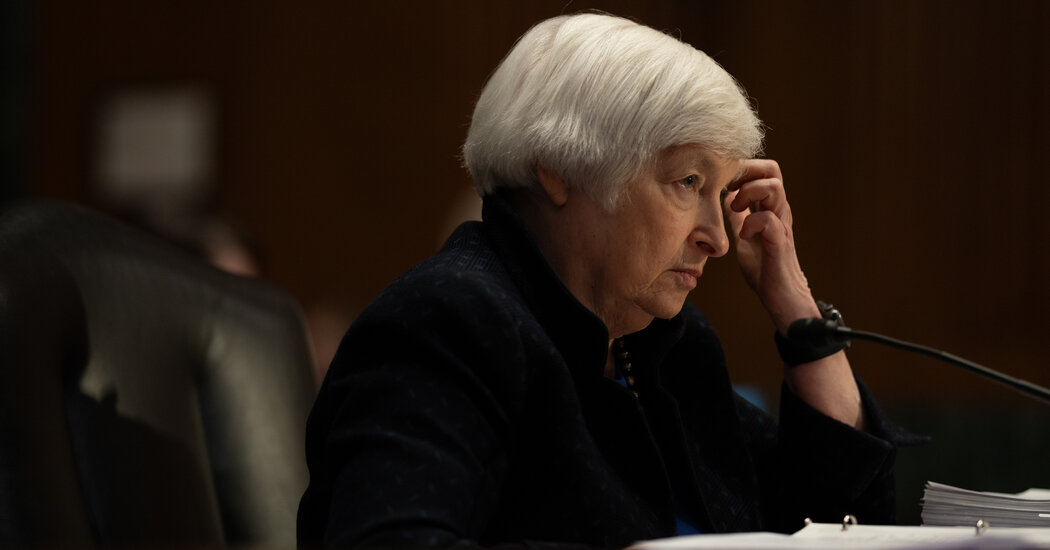The Biden administration on Friday outlined its plans to curb new American investment in critical Chinese technology industries that could be used to enhance China’s military, further straining economic ties with Beijing at a time when trade tensions are rising.
The proposed Treasury Department rules would prohibit certain U.S. investments in Chinese companies that are developing semiconductors, quantum computers and artificial intelligence systems. The Biden administration is trying to restrict American financing from helping China develop advanced technology that could be used for weapons tracking, government intelligence and surveillance.
The regulations are expected to be finalized later this year. They come nearly a year after President Biden signed an executive order calling for the investment ban, which will largely affect venture capital and private equity firms that do business with Chinese companies.
“This proposed rule advances our national security by preventing the many benefits certain U.S. investments provide — beyond just capital — from supporting the development of sensitive technologies in countries that may use them to threaten our national security,” said Paul Rosen, the Treasury Department’s assistant secretary for investment security.
The restrictions require investors to notify the Treasury Department about certain kinds of transactions, and some types of investments are explicitly prohibited. As part of the program, the Treasury Department has the power to force a divestment and violations could be referred to the Justice Department for criminal prosecution.
The rules apply to equity investments, debt financing that could be converted to equity, and to joint ventures.
The Biden administration has emphasized that the new investment restrictions are intended to be narrowly targeted and that the U.S. is not trying to block all investments in China.
Although diplomatic relations between the U.S. and China have warmed over the last year with more frequent dialogue, economic tension remains high.
Last month, Mr. Biden announced a sharp increase in tariffs on an array of Chinese imports, including electric vehicles, solar cells, semiconductors and advanced batteries, in an effort to protect strategic American industries from a new wave of competitors that he said were unfairly subsidized by Beijing.
Chinese officials have expressed concern to their U.S. counterparts, including Treasury Secretary Janet L. Yellen, about the new investment curbs. They come at time when foreign investment in China has been declining.
Data from the Rhodium Group last year found that U.S. investment in China had declined to an average of $10 billion a year since 2019, down from an annual average of $14 billion from 2005 to 2018. U.S. venture capital investment in China fell to a 10-year low of $1.3 billion in 2022.
The Biden administration has been pushing U.S. allies to create their own programs to screen investments into China.
Lawmakers in Congress have also been working on legislation that would make scrutiny of sensitive investments in Chinese technology sectors a fixture of United States law.
“When we allow American companies to invest in sectors like A.I. and semiconductors in China, we’re putting our national security and our economic future at risk,” said Senator Bob Casey, a Democrat from Pennsylvania. “The administration’s proposed rule is a good start, but I will keep pushing to pass my bipartisan legislation to make permanent an outbound investment screening program.”
